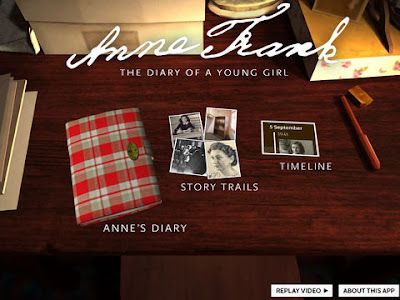Google Science Fair 2013
"We're looking for the next generation of scientists and engineers. We're looking for ideas that will change the world."
Google
Today's, January 30th, Google Science Fair 2013 has launched online! The competition is focused on finding the brightest and most revolutionary teenagers.
Google Science Fair is an international, online science and technology competition that encourages the next generation to be curious, ask questions, and perform science experiments to change the world.
In partnership with CERN, the Lego Group, National Geographic, and Scientific American, Google invites the students from around the world to post their science projects online so that they may compete for prizes, scholarships, and once-in-a-lifetime experiences.
Students have some time to register and submitt in-depth investigation of a question or engineering problem, using a sound scientific method or engineering process.
They can register through the Google Science Fair website, although they will also need the consent of a guardian (parents or guardians).
Education:
Teachers can play a crucial role as mentors and partners to young scientists, offering practical advice on their projects, but also inspiring them on their journeys of exploration and discovery.
As educators, we know how curious and creative are our students. So let us involved and start to work on it on our lessons.
Ages: 13 to 18
Google present some good ideas to offer support to our students:
- Sharing biographies of young scientific innovators throughout history. For example Marie Curie, Jules Verne (writer, a true inventor and visionary in his time);
- Checking stories out of sicence heroes who changed the world at at young age here; Ada Lovelace is among these stories. Girls in Science, remember?
- Watching videos from the previous competions here;
- Reminding students to get permission to participate from their parents or guardians;
- Guiding them through using scientific method to talk through and implement their ideas;
- Helping them find information and any specialized equipment they might need. Visit Student Resources here;
- Checking in regularly to make sure they're on track to meet the submission deadline (no procrastinating!). Visit Experiment Guidelines (what to and what to avoid) here;
You can help keep sutdents on track as they work on their projects by sending them to the Student Pack: a self-help guide that offers explanations of science terms (like hypothesis and variables), and some practice questions so they can work through important concepts and then check their answers at the end.
The youngest must have some tutoring on Student Pack.
If you need some guidelines, there are lesson plans that you can use to get your students started, and tips on getting them involved - and excited.
Parents also have a section help on the website here.
Deadline: April 30, 2013
In June, Google will select 90 regional finalists (30 from North and South America, 30 from Asia, and 30 from Europe/Africa). Out of those 90, 15 will emerge as finalists and will be jetted to Google HQ in Mountain View.
In June, Google will select 90 regional finalists (30 from North and South America, 30 from Asia, and 30 from Europe/Africa). Out of those 90, 15 will emerge as finalists and will be jetted to Google HQ in Mountain View.
On September 23rd, a panel of judges will pick the winners (one in each age category) and an overall Grand Prize winner.
The best submission will be awarded the grand prize, which includes a 10 day trip to the Galapagos Islands - Wow! - courtesy of National Geographic Expeditions.
Now, watch this increadible idea on the video below. At the age of 14, Jonah Kohn has made great progress in helping the hearing impaired experience music through his passion for Music. Beautiful!
Some conclusions:
Promoting the science interchange between young scientists and guiding them to a better world is a powerful learning strategy.
Contests are always important activities to include at the curriculum. Students are encouraged to demonstrate the inner creativity to develop their competences as innovators.
Of course an internationqal contest, in this case a world contest, is an opportunity for the young students to exchange new ideas, share common interests and gain experience from an event which involves some many teenagers scientists.
"The great benefit of science is that it can make a tremendous contribution to the alleviation of suffering on a physical level, but it is only by cultivating the qualities of the human heart."
Dalai Lama
" It's your turn to change the world. Make sure you register."
G-Souto
30.01.2013
copyright © 2013G-Souto'sBlog, gsouto-digitalteacher.blogspot.com
Google Contest for Young Inventive Scientists by G-Souto is licensed under a Creative Commons Attribution-NonCommercial-ShareAlike 3.0 Unported License.
Credits: videos | image Google












